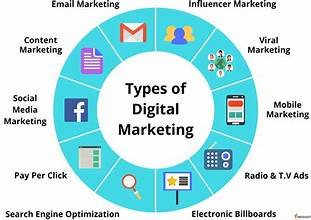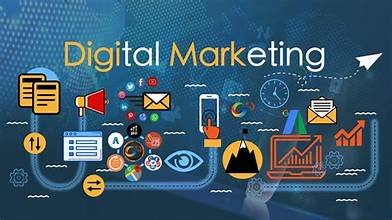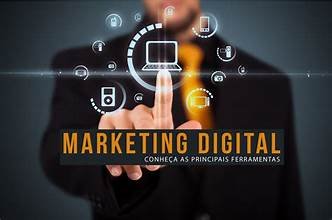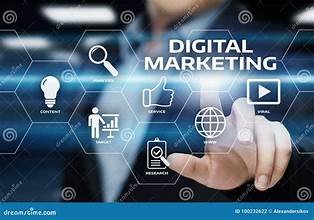Digital Marketing:
Digital marketing refers to the use of digital channels, technologies, and strategies to promote products, services, or brands to a targeted audience. It has revolutionized the way businesses interact with consumers by providing measurable, scalable, and cost-effective marketing solutions.
In this article, we’ll explore the key components, benefits, and significance of digital marketing in today’s digital-first world.
Search Engine Optimization (SEO):
- Enhances a website’s visibility on search engines like Google.
- Involves optimizing keywords, improving site structure, and acquiring quality backlinks.
- Goal: Increase organic traffic and improve rankings.
Content Marketing:
- Focuses on creating valuable, engaging, and informative content to attract and retain an audience.
- Includes blogs, videos, infographics, eBooks, and social media posts.
- Goal: Build trust and authority in the market.
Social Media Marketing (SMM):
- Utilizes platforms like Facebook, Instagram, LinkedIn, and Twitter to promote products or services.
- Involves creating shareable content, running ads, and engaging with users.
- Goal: Foster brand loyalty and expand reach.
Pay-Per-Click (PPC) Advertising:
- Involves running paid ads on platforms like Google Ads or social media networks.
- Advertisers pay only when users click their ads.
- Goal: Drive targeted traffic and achieve immediate results.
Email Marketing:
- Sends personalized and targeted messages directly to a user’s inbox.
- Includes newsletters, promotional offers, and customer engagement campaigns.
- Goal: Nurture leads and increase conversions.
Affiliate Marketing:
- Involves partnering with affiliates who promote a product or service in exchange for a commission on sales.
- Goal: Leverage other marketers to increase reach and sales.
Influencer Marketing:
- Collaborates with social media influencers or industry leaders to promote a brand.
- Goal: Build credibility and connect with niche audiences.
Analytics and Data:
- Uses tools like Google Analytics to measure campaign performance.
- Goal: Optimize strategies based on data-driven insights.
Benefits of Digital Marketing
Global Reach:
- Enables businesses to reach audiences across the world without geographical barriers.
Cost-Effectiveness:
- More affordable compared to traditional marketing methods like TV or print ads.
Targeted Advertising:
- Allows precise audience targeting based on demographics, interests, behavior, and location.
Measurable Results:
- Provides real-time analytics, allowing marketers to track ROI and campaign effectiveness.
Engagement:
- Facilitates direct interaction with consumers, fostering trust and loyalty.
Adaptability:
- Allows quick adjustments to campaigns based on market trends or audience behavior.
In an era where consumers spend a significant amount of time online, digital marketing has become indispensable. Businesses that leverage digital channels effectively can stay ahead of the competition, build meaningful relationships with customers, and drive long-term growth.
Digital marketing is a powerful tool that empowers businesses to connect with their target audience in a measurable and impactful way. By understanding and implementing its core components, companies can achieve their marketing goals and thrive in a competitive digital landscape.





